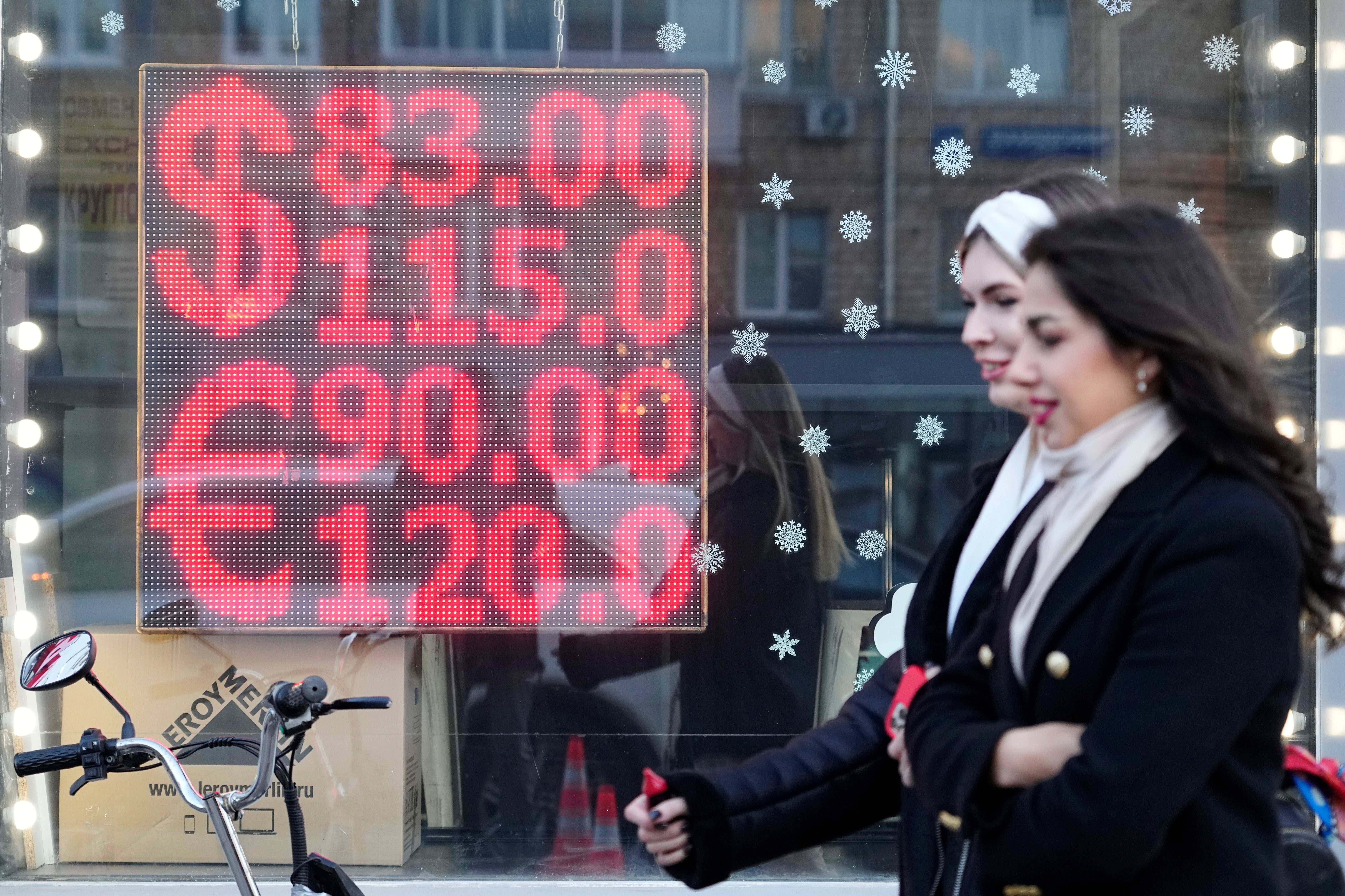Russian bond trading resumes for 1st time since Ukraine war
Russia’s central bank cautiously reopened bond trading on the Moscow exchange for the first time since the country invaded Ukraine

Russia's central bank cautiously reopened bond trading on the Moscow exchange Monday for the first time since the country invaded Ukraine, with the price of Russia’s ruble-denominated government debt falling and sending borrowing costs higher.
Stock trading remained closed, with no word on when it might reopen.
The central bank bought bonds to support prices. The bank has imposed wide-ranging restrictions on financial transactions to try to stabilize markets and combat the severe fallout from Western sanctions that have sent the ruble sharply lower against the U.S. dollar and the euro.
Ratings agencies have downgraded Russia's bonds to “junk" status, and the head of the International Monetary Fund has said a default on government debt is no longer “an improbable event.” Russia's finance ministry last week flirted with default by threatening to pay foreign holders of dollar bonds in massively devalued rubles before sending the money in dollars.
However, it missed another interest payment to foreign investors early this month, which could result in the government being declared in default after a 30-day grace period expires. The Russian government sent that payment on ruble debt to a government depository account instead of to bondholders.
The government relies on domestic Russian banks for most of its borrowing needs.
The RGBI index of government debt fell 9.4%, the Tass news agency reported, pushing interest yields on bonds with maturities of 1-2 years to 19.5% and for 10 years to 18.1%.
The central bank said in a statement on its website that the bonds it purchased would be disposed of later to avoid influencing the bank's monetary policy.
Stocks last traded on Feb. 25, the day after the invasion started and sent the main stock index sharply lower. The central bank said announcements about trading in other sections of the exchange than bonds would be made at a later time.